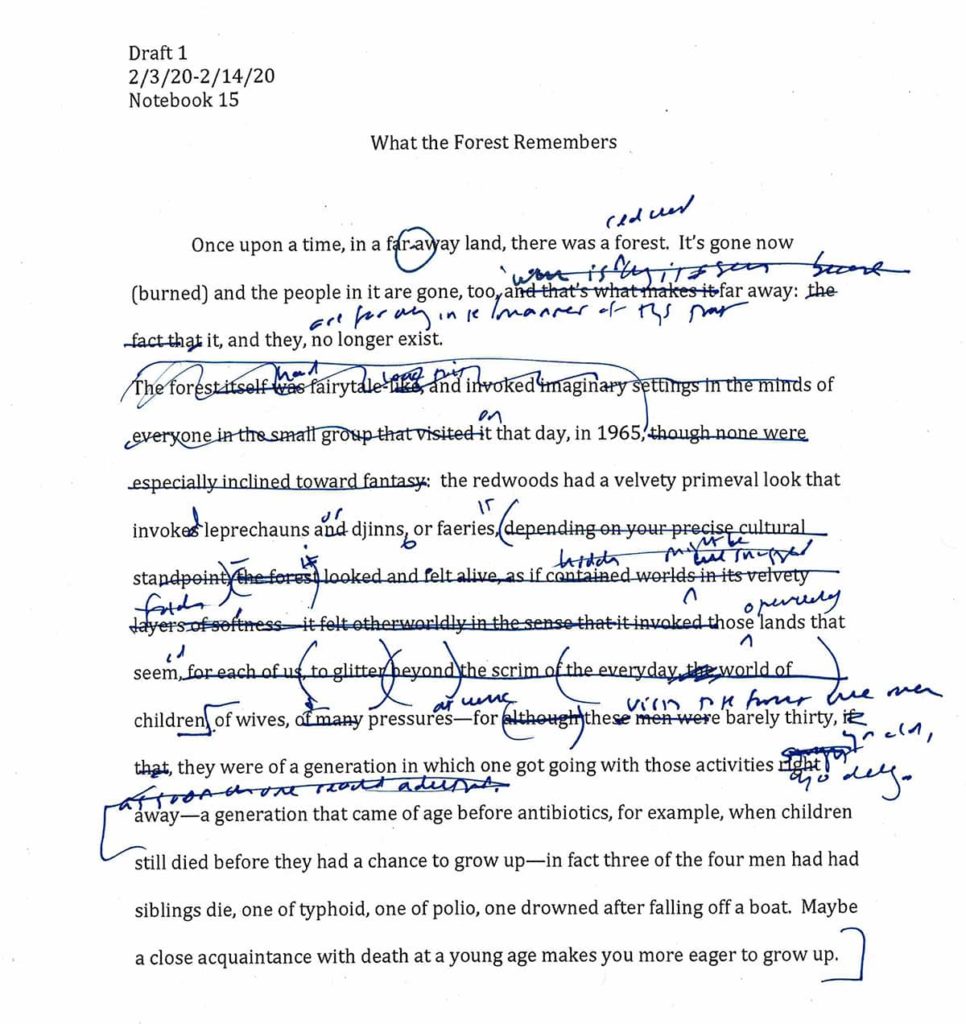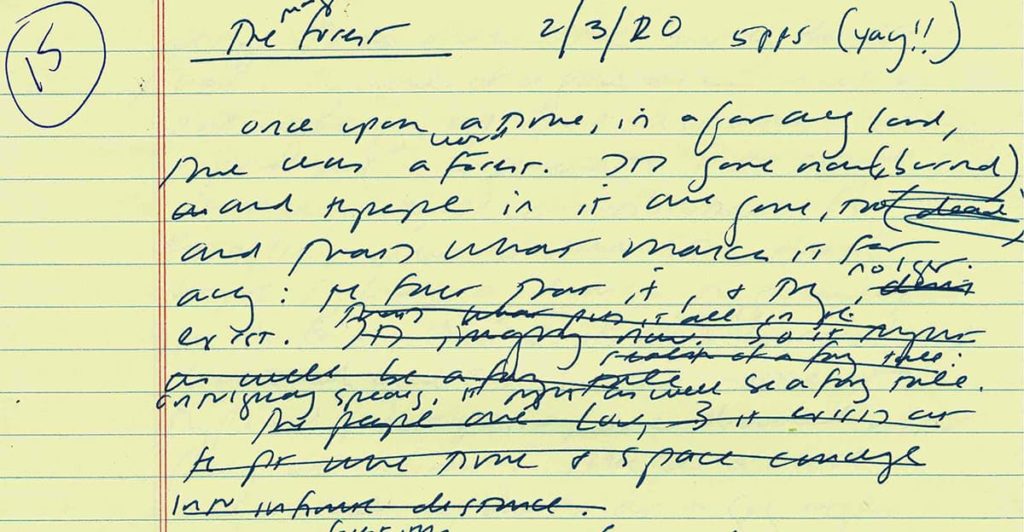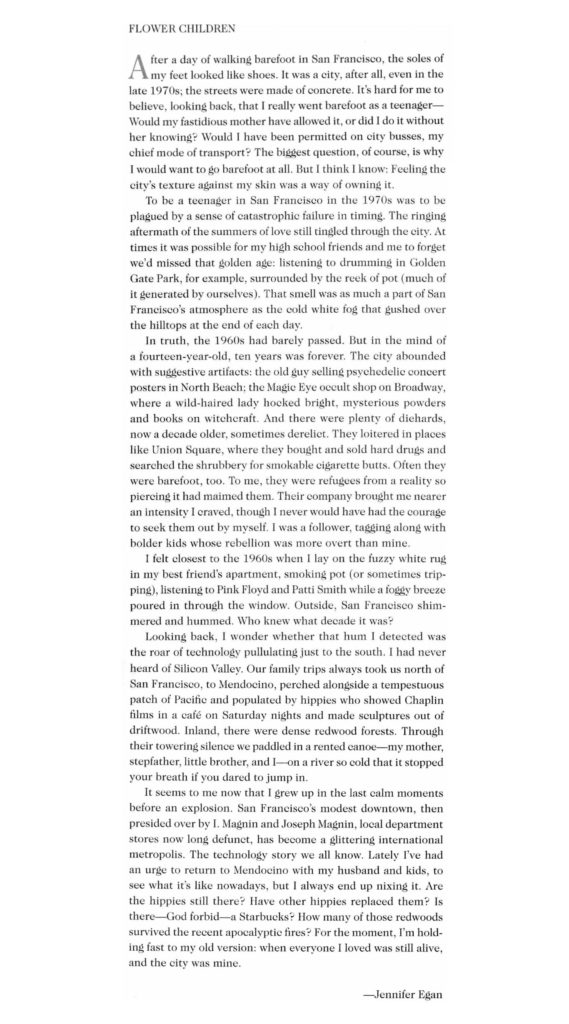What the Forest Remembers
Once upon a time, in a faraway land, there was a forest. It’s gone now (burned), and the four men walking in it are gone, too, which is what makes it far away. Neither it nor they exist.



But in June 1965, the redwoods have a velvety primeval look that brings to mind leprechauns or djinns or faeries. Three of the four men have never been in these ancient woods, and to them the forest looks otherworldly, so removed is it from their everyday vistas of wives and children and offices. The oldest, Lou Kline, is only thirty-one, but all were born in the 1930s and raised without antibiotics, their military service completed before they went to college. Men of their generation got started on adulthood right away.
So: four men moving among trees whose musculature resembles the thighs of giants. When the men throw back their heads to search the sunlight for the trees’ pointed tips, they grow dizzy. That’s partly because they’ve just smoked marijuana; not a common practice in 1965, especially among squares, as anyone would agree these four are. Or three of them. There is a leader—there is usually a leader when men leave their established perimeters—and today it is Quinn Davies, a tanned, open-faced man accoutered with artifacts of a Native American ancestry he wishes he possessed. Normally, Quinn would wear a blazer, like the rest of them, but today he’s donned what strikes his pals as a costume: a purple velvet coat and heavy moccasins that prove far better suited to navigating this soft undergrowth than the oxfords they’re sliding around in. Only Lou manages to keep pace with Quinn, despite the fawnlike skittering this feat requires of him. Lou would rather look spasmodic than risk falling behind.
These men all moved to California recently, driven by a lust for space that can’t be satisfied by old cities with their tinge of Europe and horse carts and history. There is an ungoverned feel to California’s mountains and deserts and reckless coast. Quinn Davies, the only bachelor in the group, is homosexual, and was on the lookout early for a graceful exit from Bridgeport, Connecticut, where his family has lived for generations. After the navy, he followed the Beats to San Francisco, but now that he’s here, they’ve proved maddeningly elusive. Still, there are always sailors who share Quinn’s view that a man can be a multitude of ways, depending on circumstances. He has a flickering hope about one of the other four: Ben Hobart, from Minnesota, married to his high school sweetheart, a father of three. But it’s too soon to tell.
All four work in San Francisco in banking, doing their part to feed an expansion that will draw more restless folk like themselves to the city. Over drinks on Montgomery Street a few weeks back, they got to talking about “grass,” as marijuana is known even to those who have never seen it. They know grass is around, but what is it, exactly? What does it do? All four like to drink. Quinn Davies drinks so that those around him will drink, too—which occasionally makes possible an unexpected adventure. Ben Hobart drinks because it subdues a greedy energy that can find no outlet around his wife and kids. Tim Breezely drinks because…